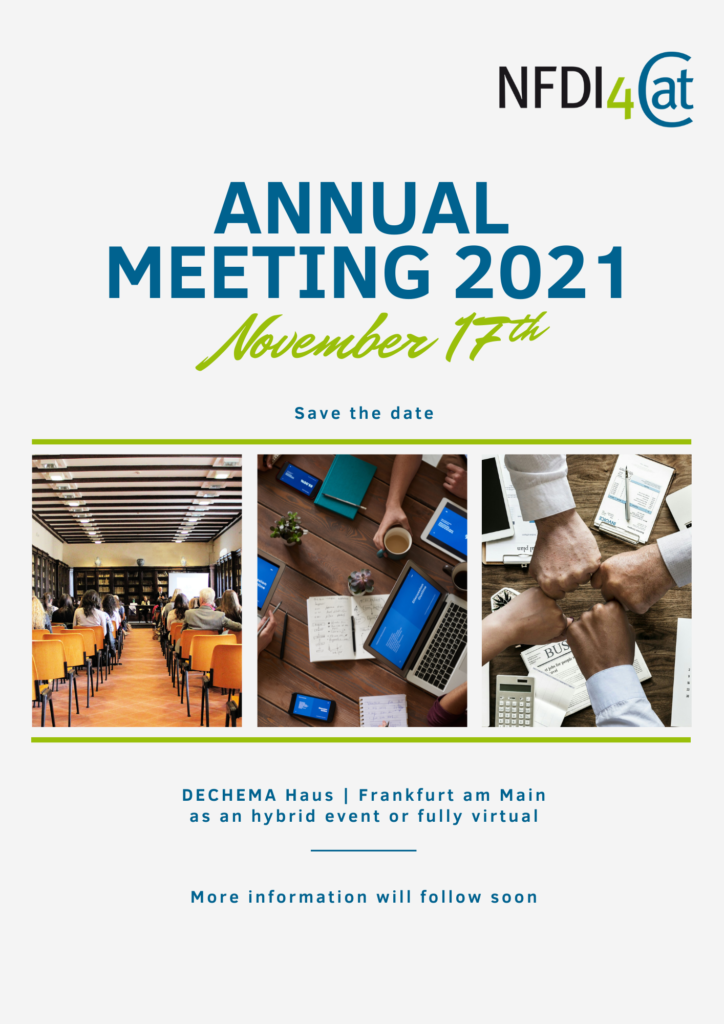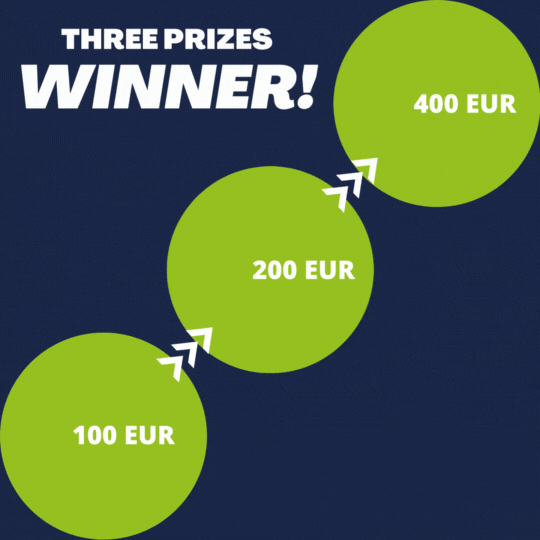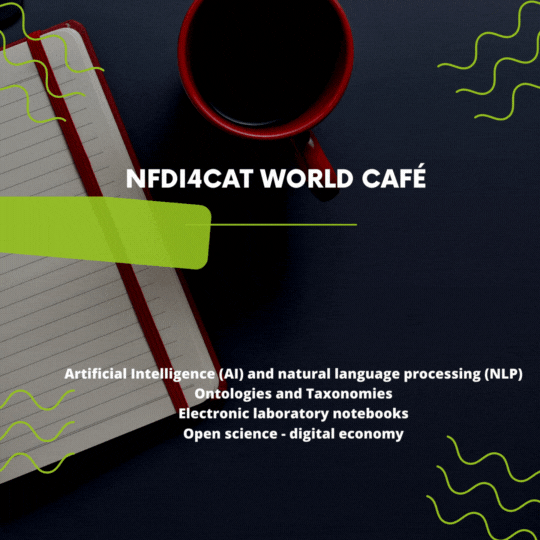Innovations Shine at Flash Pitch Forum of ADCR 23
Unveiling Cutting-edge Solutions in a Rapid-Fire Format
The ADCR 23, held on 2nd and 3rd November 2023, showcased a dynamic and innovative atmosphere with the introduction of the Flash Pitch Forum. This forum is a vibrant platform designed for participants to succinctly showcase their innovative tools and services in a 10-minute pitch, emphasizing interdisciplinary applications and potential impacts on Research Data Management (RDM) followed by a brief Q&A session. It is also an opportunity to elevate the visibility of participants’ work, engage with peers, and explore collaborative possibilities within other NFDI communities and even fellow international organizations.
Unveiling Cutting-edge Technologies
The forum witnessed the unveiling of several advanced technologies that have the potential to revolutionize the field of RDM in different areas such as business, economics, and catalysis. Data management tools such as Berd Data Portal, NOMAD, Adacta and LARAsuite were introduced by presenters from different research areas. We are looking forward to a closer collaboration and more exchange with all researchers from various fields working on RDM-related topics and our international fellows.
Collaboration and Networking Opportunities
The Flash Pitch Forum not only provided a platform for the rapid dissemination of tools and services about increasing the speed of data collection, having more metadata details about a certain topic and having a better opportunity for analyzing and interpreting the data, but also fostered collaboration and networking among participants. Researchers, industry professionals, and investors engaged in meaningful discussions, exploring potential partnerships and collaborations to further develop and implement the presented technologies.
Industry Impact and Future Prospects
The innovations showcased during the Flash Pitch Forum have the capacity to significantly influence various industries beyond just catalysis. As the catalysis community continues to embrace these cutting-edge solutions, the ADCR reaffirms its commitment to driving progress in the field and providing a dynamic platform for the exchange of ideas.
Some examples of Flash Pitch talk videos can be found in our Youtube Channel:
Flash Pitch Forum 2023 – YouTube
The Annual Meeting of the NFDI4Cat (ADCR 23) was accompanied on 2nd and 3rd Nov with a dynamic and engaging poster session, bringing together researchers and experts from across our catalysis community.
Event Overview: The poster session, a pivotal part of the annual gathering, showcased a diverse array of research projects, methodologies, and breakthroughs in Research Data Management (RDM) within the catalysis community. Researchers presented their work on topics ranging from development of RDM tools such as Adacta, RDM4Lab, Galaxy, documentation of research metadata within a semantic framework until ontology and metadata developments.
Highlights:
- Innovative Research: Attendees were treated to a display of cutting-edge research, reflecting the vibrant and dynamic nature of the RDM topic. Within the concept of FAIR (Findable, Accessible, Reusable and Interoperable) data, the posters covered a wide spectrum of Research Data Management-related advancements.
- Networking and Collaboration: The poster session served as a hub for networking, providing a platform for researchers to connect, exchange ideas, and explore potential collaborations. The atmosphere was charged with enthusiasm as participants engaged in discussions, sharing insights and fostering future partnerships.
- Diverse Perspectives: The event celebrated the diversity of research within NFDI4Cat, with contributions from both early-career researchers and established experts. This inclusivity contributed to a rich and multifaceted dialogue about the current state and future directions of RDM within the catalysis community.
Looking Ahead: As the ADCR 23 concludes, the catalysis community is energized and optimistic about the future. The success of the poster session underscores the commitment of NFDI4Cat to promote collaboration and facilitate the sharing of RDM-related topics which is going to change the future of Research Data Management. .
Some examples of event posters could be found at:
- PIDs in the Field of Catalysis – What can NFDI4Cat offer? (zenodo.org)
- voc4cat – A SKOS vocabulary for the catalysis disciplines. From proof of concept to a reliable service. (zenodo.org)
- Publishing reproducible results supported by FAIR data (zenodo.org)
- Extending a Ontological Metadata Framework for Catalysis-related Data (zenodo.org)
- The ROCK-IT project (zenodo.org)
- RDM4Lab: A Research Data Management Tool for Laboratory Praktikum Courses (zenodo.org)
- Current Progress & Challenges in Building Research Data Management System for Catalysis-Related Sciences (zenodo.org)
A Resounding Success!
In today’s rapidly evolving scientific landscape, proficiency in programming is no longer a luxury—it’s a necessity. From 18th to 20th, 2023, NFDI4Cat and NFDI4Chem jointly organised the workshop “Python Computing 4 Chemists (and Others)” in Aachen, Germany. This event was specifically designed for individuals who are novices in the domain of Python programming. It aimed to provide them with foundational knowledge, using practical, science-based examples, to kick-start their journey into the world of computational techniques.
Event Insights:
- Diverse Participation: The event attracted interest far and wide. While predominantly catering to chemists and catalysis researchers, we were heartened to see participation from diverse fields, including engineering, physics, and even economics.
- Overwhelming Interest: The fervent interest shown towards the event from the research and academic community was truly remarkable. While we received a surge of 300 online registration requests, we were constrained to accommodate only 100 participants due to logistical reasons.
- Beginner’s Haven: True to its promise, the event catered predominantly to novices eager to embark on their Python journey, rather than seasoned experts. This ensured a nurturing and collaborative learning environment.
Reflecting on Success:
The overwhelming response to “Python Computing 4 Chemists (and Others)” is a testament to the increasing recognition of the potential of programming across various research domains and the indispensable role of data in amplifying the capabilities of computational tools like Python. The essence of high-quality research data management was palpable during the event. Given the resounding success of this event and the evident demand, we are enthusiastic about hosting more such sessions in the future. We remain committed to bridging the gap between computational prowess and research brilliance.
Stay tuned for more updates and opportunities to dive deeper into the world of Python with NFDI4Cat!
Regardless of your field of research, you understand that data forms the foundation of your work. It’s not just about the volume of data, but also the ability to analyze and present it to derive insights.
NFDI4Cat and NFDI4Chem invite you to enhance your Python programming skills. You will gain the ability to solve various problems, glean valuable insights, and collaborate with peers in your field.
What You’ll Learn Through Scientific Examples:
- Introduction to Python
- Data Visualization
- Fitting Simple Equations
- Intersection of Functions
- Numerical Integration
- Solving Differential Equations
- Basics of Machine Learning
- And much more…
Event Details: Python Computing 4 Chemiker (und andere)
Registration:
We look forward to welcoming you to our Python programming course and exploring the world of data analysis and visualization together!
ADCR 2022 at a Glance
After the success of our first annual meeting, we are pleased to invite you to the second NFDI4Cat annual meeting at the DECHEMA House in Frankfurt am Main. From now on, we will continue our annual meeting under the name Annual Digital Catalysis & Catalysis-Related Sciences Conference 2022 – The ADCR22.
Come and gain insights into the latest developments in research data management in the field of catalysis!
Exhibitors
We thank the NFDI partners for their support!
Keynote-Speakers
- Dr. Ansgar Schäfer (BASF SE) More information will follow…
Poster-Session
NFDI4Cat aims to motivate young academics and young professionals from industry to contribute to research data management in the field of catalysis and catalysis-related sciences. Thus, this event provides space for new and innovative topics to be presented and discussed in the form of posters. For this reason, we invite the submission of abstracts for poster presentations until September 1, 2022 here ..
The winners will be presented on site at the end of the event. The award ceremony will be streamed online for all participants. Don’t miss your chance to win one of the four poster prizes sponsored by hte and BASF SE!
Three prizes with expert evaluation!
From dialogue to action @ the NFDI4Cat World Café
You are invited to join us in a collaborative conversation to develop collaborative ideas and new projects. Have a seat at the table and join us in collaborative dialogue, active engagement, and constructive opportunities for action on on four key topics.
Signup for any of the sessions is available during registration and is limited to those participants present at the event. The World Café sessions is scheduled for one hour.
Agenda
Registration and Fees
The event is free of charge, but registration is required. Registration is possible until the start of the conference. After registration you will receive an E-Mail with the confirmation and all important information.
Almost two years after the launch of NFDI4Cat, we would like to share with you, the public and the scientific community what we have accomplished so far. Save the date, our second annual meeting will take place September 23, 2022.
After the success of our first annual meeting, it is our pleasure and privilege to invite you to the second upcoming NFDI4Cat annual meeting at the DECHEMA-House in Frankfurt am Main. We are currently planning a hybrid event for the day and will inform all interested parties as soon as more detailed information is available.
We are pleased to announce the appointment of Dr. Michael Geske as successor to Dr. Krähnert. Dr. Ralph Krähnert, leader of the task area “Data Analysis, Quality Management and Reuse”, left our NFDI4Cat consortium in January of this year. We would like to sincerely thank Dr. Krähnert, who has been part of the consortium from the beginning, for the successful cooperation. Dr. Geske will continue to work on the task area “Data analysis, quality management and reuse”.
Dr. Geske is group leader at the BasCat UniCat BASF JointLab with a focus on reactor and process analysis. He brings expertise in heterogeneous catalysis, reaction kinetics and characterisation. Dr. Geske studied chemistry at the Technical University of Berlin. In 2005, he started his Ph.D. in the inorganic chemistry department of the Fritz Haber Institute of the Max Plank Society. During that period, he noticed for the first time how important a common storage place and a common language helps in data handling. In 2012 he went back to the Technical University Berlin and joined BasCat – UniCat BASF JointLab as group leader. In addition to the various projects, Dr. Geske was and still is, always interested in lab digitalization. Although it was enough to automate self-built test facilities for an unattended 24/7 operation a decade ago, complete lab digitalization is the main challenge nowadays.
Within BasCat, data are collected, simple analysis is done online and meta-data from e.g., synthesis is linked and stored to the specific catalyst. Dr. Geske is the responsible person at BasCat for this digitalization process. Unfortunately, the information exchange between different collaboration partners is currently still often done by individual SharePoints. The idea of NFDI4Cat in creating one database for the collection of all kinds of data and using the same language is perfect to bring all scientists to the same level. Intelligent user management offers the possibility to handle open and restricted data. The implementation of analysis and quality management tools will help to trigger creative data analysis and ensure a high-quality database.
When we asked Mr. Geske what interests him most about this project Mr. Geske answered: “With the ongoing digitalization of our lab space at BasCat new ways of data analysis and interpretation appear, which were not possible without having access to all characterization and synthesis meta-data. Increasing now the amount of people from one lab to basically everyone is a huge chance for science. It will be an amazing place where all scientists speak one language and a hot spot for creative data analysis and new ideas. It will be fascinating not to work only with own, but also with data from all over Germany.”
We are convinced that Mr Geske will be an excellent addition to our team, as research data management is his favourite subject, and his scientific experience will be invaluable.
The date is set! We cordially invite everyone to our NFDI4Cat Annual Meeting, which will take place on Wednesday, 17 November 2021 at DECHEMA headquarters in Frankfurt am Main. We are currently planning a hybrid event for this day and will inform all interested parties as soon as more detailed information is available.

Stay tuned…
The new issue of Bausteine Forschungsdatenmanagement has been published. In addition to the NFDI e.V., the focus is on the nine consortia of the first funding round. Each publication provides deep insights into the structure of the individual consortia, their plans and visions.
Our publication “NFDI for Catalysis-Related Sciences – NFDI4Cat” is part of this special issue and can now be accessed online for free. Read why effective research data management is crucial in catalysis, what the challenges are and how we plan to address them.
Click here to read the full special issue: No. 2/2021 of Building Blocks Research Data Management.
On September 22, 2021, the RDM School of Catalysis started a first test run as part of the South-West German Catalysis Institute in Annweiler at Trifels. Within 160 minutes, including open discussion and interactive examples, the 15 participants from different institutions received insights into research data management in the field of catalysis.
In the first half of the event an overview of the basics of research data management was presented, followed by an introduction to the function and advantages of databases and -modeling. The feedback from the course participants collected at the end of the first modules will be used to better adapt the future courses of the RDM School of Catalysis to the requirements and needs of PhD candidates and postdocs. The aim of the RDM School of Catalysis is to provide participants with a guide to utilization of research data in all fields of catalysis.



